Index relies entirely on the support of donors and readers to do its work.
Help us keep amplifying censored voices today.
Songhoy Blues is a four-strong “desert blues” band, based in Mali. It is made up of musicians who fled northern Mali after a loose assortment of militant Islamist groups captured the territory and implemented strict sharia law – including the prohibition of secular music – in spring 2012. The musicians first met at a wedding in Bamako, Mali’s capital city, and started playing together to help recreate the rich tradition of northern Malian music for the growing population of refugees in the south.
Musicians had long been important social figures in Mali. They occupied a specific, revered cultural class, called the “griots”, and their role encompassed entertainer, reporter, historian, and political commentator. Their unique power and influence explains why the invading Movement for Oneness and Jihad in West Africa, the largest of the fundamental Islamist groups, were particularly keen to block their activities in August 2012.
The official sentence for breaching the music ban was a public whipping, although Songhoy Blues’ founding member and guitarist Garba Touré was threatened with having his hand cut off if he continued playing. Radio stations were burned down, musical instruments were smashed, and there were reports of people being beaten by the occupying militia just for having polyphonic ringtones.
The Malian military stepped in to counteract the Islamist groups’ advance in February 2013, with the help of troops from France and surrounding African countries. But emotional residue from the conflict lingers, and – despite the lifting of sharia law – many musicians continue to self-censor, fearful of the Islamist groups’ return and retribution.
Garba Touré left his hometown of Diré, upstream from Timbuktu along the river Niger, once his safety in northern Mali had become untenable. He settled in Bamako, 1000km away, alongside thousands of other refugees. Here he met two more musicians from the Songhoy tribe (a North Malian ethnic group), Aliou Touré and Oumar Touré, and local drummer Nathanael Dembélé.
As a band the foursome played rough and rowdy blues-rock anthems, the lyrics of which called for an end to the conflict. Their audiences, which packed out Bamako bars and restaurants, were a mix of refugee Songhoys and Tuaregs – long-feuding northern Malian ethnic groups united against the insurgent Islamist groups.
The band joined forces with Africa Express, a group of Western singers and producers led by Damon Albarn, which had come to Bamako to work with local artists in September 2013. Songhoy Blues collaborated with Yeah Yeah Yeahs guitarist Nick Zinner on a song called Soubour (i.e. “patience” – Garba has said, “We’re asking the refugees to have patience. Without patience, nothing is possible”). This became the lead single for Maison des Jeunes, the album made during Africa Express’s Mali trip.
In 2014 Songhoy Blues went on a global tour, and also supported artists such as Damon Albarn and Julian Casablancas in tours across Europe. Mojo magazine has named them one of 10 “new faces of 2015”. Their debut album, Music In Exile, will be released in February, and its lead single – called Al Hassidi Terei and produced by Zinner – has received critical acclaim. The band are also working on a feature film about the music ban in northern Mali.
Video: Mari Shibata | Text: Will Haydon
This article was posted on 24 February 2015 at indexoncensorship.org

Songhoy Blues, performing in London, asked the audience to imagine music being banned in the UK.
Aliou Touré, lead vocalist of the Malian band Songhoy Blues, introduced their concert in London by talking about the challenges musicians face in Mali, where music was banned by a local armed Islamist group in the north of the country in 2012.
“It is liberating to be able to perform tonight because in my country, I do not have the same freedom of expression,” Touré added before the kick off.
As the concert rolled on, one could easily forget that Songhoy Blues — who are touring in the UK ahead of their album launch later in the year — were deprived from playing music at home.
In September 2013, documentary filmmaker Johanna Schwartz wrote for Index on Censorship magazine on the censorship and persecution that musicians in Mali have faced since the ban on music: “There is a fear that freedoms may not be so easily restored,” wrote Schwartz. Today, although the ban has been theoretically lifted, the fear remains. “Because of the violence, it is still impossible for me to play music in my hometown,” said Touré, who is from the northern city Gao.
Like thousands of refugees, Touré left for Bamako amid escalating violence.
In the capital city, Touré and other musician friends — Garba, Oumar and Nathanael — from the north decided to form a band. The very creation of their band is an act of hope and resistance: “Somehow, the ban on music played in our favour because it’s only after we left the north that we came together and formed Songhoy Blues,” explained Touré.
The band is now based in Bamako, where the members long for the weekend to perform in local bars. But as music was being driven out of the country — even those with musical ringtones on their mobile phones faced crackdowns — many musicians fled Mali. They Will Have to Kill Us First, Schwartz’s feature-length documentary, follows the story of Mali’s musical superstars as they fight for their right to sing.
At this time, They Will Have to Kill Us First is in the final stages of shooting, and it is still uncertain if Songhoy Blues and the other Malian musicians in exile will feel safe enough to return to home.
This article was posted on July 30, 2014 at indexoncensorship.org
International Women’s Day is a day to remember violence against women, the education gap, the wage gap, online harassment, everyday sexism, the intersection between sexism and other -isms, and a whole host of other issues to make us realise we’ve still got a long way to go. A day to demand continued progress, and a day to pledge to work to achieve it.
But it is also a day to celebrate. To appreciate the fantastic achievements that are made every day, everywhere, by women from all walks of life. It’s a day to be grateful to the women who dedicate their lives to fighting on the front lines to protect rights vital to us all. We want to shine the spotlight on women who have stood up for freedom of expression when it’s not the easy or popular thing to do, against fierce opposition and often at great personal risk. The following eight women have done just that. We know there are many, many more. Tell us about your female free speech hero in the comments or tweet us @IndexCensorship.
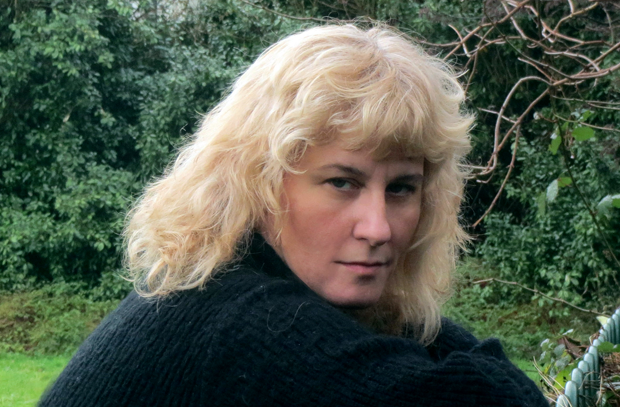
Meltem Arikan
Arikan is a writer who has long used her work to challenge patriarchal structures in society. He latest play “Mi Minor” was staged in Istanbul from December 2012 to April 2013, and told the story of a pianist who used social media to challenge the regime. Only a few months after, the Gezi Park protests broke out in Turkey. What started as an environmental demonstration quickly turned into a platform for the public to express their general dissatisfaction with the authorities — and social media played a huge role. Arikan was one of many to join in the Gezi Park movement, and has written a powerful personal account of her experiences. But a prominent name in Turkey, she was accused of being an organiser behind the protests, and faced a torrent of online abuse from government supporters. She was forced to flee, now living in exile in the UK.
I realised that we were surrounded, imprisoned in our own home and prevented from expressing ourselves freely.

Anabel Hernández (Image: YouTube)
Hernández is a Mexican journalist known for her investigative reporting on the links between the country’s notorious drug cartels, government officials and the police. Following the publication of her book Los Señores del Narco (Narcoland), she received so many death threats that she was assigned round-the-clock protection. She can tell of opening the door to her home only to find a decapitated animal in front of her. Before Christmas, armed men arrived in her neighbourhood, disabled the security cameras and went to several houses looking for her. She was not at home, but one of her bodyguards was attacked and it was made clear that the visit — from people first identifying themselves as members of the police, then as Zetas — was because of her writing.
Many of these murders of my colleagues have been hidden away, surrounded by silence – they received a threat, and told no one; no one knew what was happening…We have to make these threats public. We have to challenge the authorities to protect our press by making every threat public – so they have no excuse.
Amira Osman, a Sudanese engineer and women’s rights activist was last year arrested under the country’s draconian public order act, for refusing to pull up her headscarf. She was tried for “indecent conduct” under Article 152 of the Sudanese penal code, an offence potentially punishable by flogging. Osman used her case raise awareness around the problems of the public order law. She recorded a powerful video, calling on people to join her at the courthouse, and “put the Public Order Law on trial”. Her legal team has challenged the constitutionality of the law, and the trial as been postponed for the time being.
This case is not my own, it is a cause of all the Sudanese people who are being humiliated in their country, and their sisters, mothers, daughters, and colleagues are being flogged.
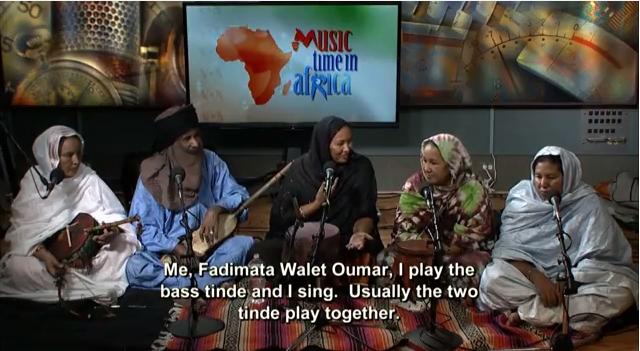
Fadiamata Walet Oumar with her band Tartit (Image: YouTube)
Fadiamata Walet Oumar is a Tuareg musician from Mali. She is the lead singer and founder of Tartit, the most famous band in the world performing traditional Tuareg music. The group work to preserve a culture threatened by the conflict and instability in northern Mali. Ansar Dine, an islamists rebel group, has imposed one of the most extreme interpretations of sharia law in the areas they control, including a music ban. Oumar believes this is because news and information is being disseminated through music. She fled to a refugee camp in Burkina Faso, where she has continued performing — taking care to hide her identity, so family in Mali would not be targeted over it. She also works with an organisation promoting women’s rights.
Music plays an important role in the life of Tuareg women. Our music gives women liberty…Freedom of expression is the most important thing in the world, and music is a part of freedom. If we don’t have freedom of expression, how can you genuinely have music?

Khadija Ismayilova
Ismayilova is an award-winning Azerbaijani journalist, working with Radio Free Europe/Radio Liberty. She is know for her investigative reporting on corruption connected to the country’s president Ilham Aliyev. Azerbaijan has a notoriously poor record on human rights, including press freedom, and Ismayilova has been repeatedly targeted over her work. She was blackmailed with images of an intimate nature of her and her boyfriend, with the message to stop “behaving improperly”. This February, she was taken in for questioning by the general prosecutor several times, accused of handing over state secrets because she had met with visitors from the US Senate. In light of this, she posted a powerful message on her Facebook profile, pleading for international support in the event of he arrest.
WHEN MY CASE IS CONCERNED, if you can, please support by standing for freedom of speech and freedom of privacy in this country as loudly as possible. Otherwise, I rather prefer you not to act at all.
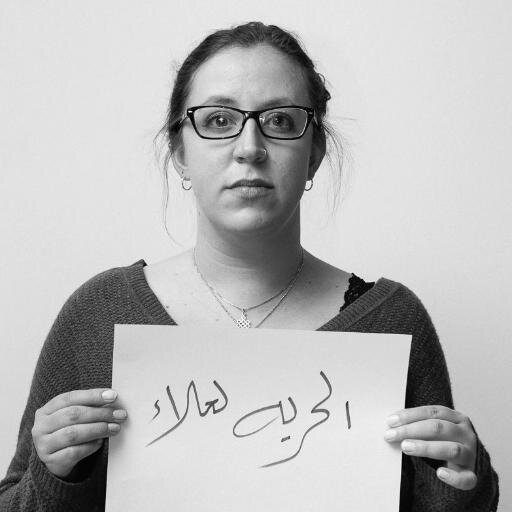
Jillian York (Image: Jillian C. York/Twitter)
Jillian York is a writer and activist, and Director of Freedom of Expression at the Electronic Frontier Foundation (EFF). She is a passionate advocate of freedom of expression in the digital age, and has spoken and written extensively on the topic. She is also a fierce critic of the mass surveillance undertaken by the NSA and other governments and government agencies. The EFF was one of the early organisers of The Day We Fight Back, a recent world-wide online campaign calling for new laws to curtail mass surveillance.
Dissent is an essential element to a free society and mass surveillance without due process — whether undertaken by the government of Bahrain, Russia, the US, or anywhere in between — threatens to stifle and smother that dissent, leaving in its wake a populace cowed by fear.
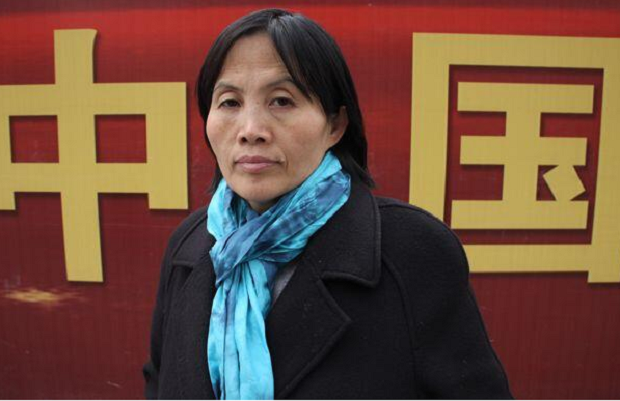
Cao Shunli (Image: Pablo M. Díez/Twitter)
Shunli is an human rights activist who has long campaigned for the right to increased citizens input into China’s Universal Periodic Review — the UN review of a country’s human rights record — and other human rights reports. Among other things, she took part in a two-month sit-in outside the Foreign Ministry. She has been targeted by authorities on a number of occasions over her activism, including being sent to a labour camp on at least two occasions. In September, she went missing after authorities stopped her from attending a human rights conference in Geneva. Only in October was she formally arrested, and charged for “picking quarrels and promoting troubles”. She has been detained ever since. The latest news is that she is seriously ill, and being denied medical treatment.
The SHRAP [State Human Rights Action Plan, released in 2012] hasn’t reached the UN standard to include vulnerable groups. The SHRAP also has avoided sensitive issue of human rights in China. It is actually to support the suppression of petitions, and to encourage corruption.
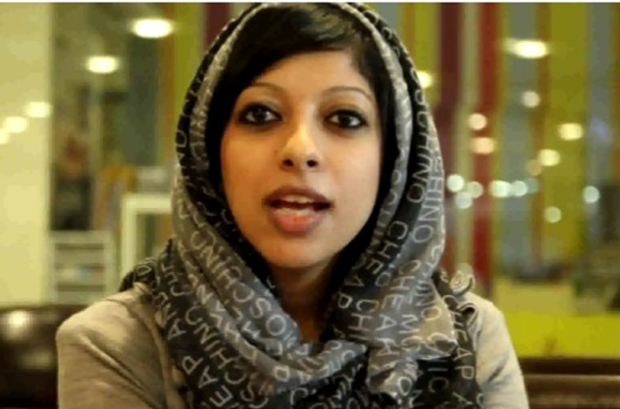
Zainab Al Khawaja
Al Khawaja is a Bahraini human rights activist, who is one of the leading figures in the Gulf kingdom’s ongoing pro-democracy movement. She has brought international attention to human rights abuses and repression by the ruling royal family, among other things, through her Twitter account. She has also taken part in a number of protests, once being shot at close range with tear gas. Al Khawaja has been detained several times over the last few years, over “crimes” like allegedly tearing up a photo of King Hamad bin Isa Al Khalifa. She had been in jail for nearly a year when she was released in February, but she still faces trials over charges like “insulting a police officer”. She is the daughter of prominent human rights defender Abdulhadi Al Khawaja, who is currently serving a life sentence.
Being a political prisoner in Bahrain, I try to find a way to fight from within the fortress of the enemy, as Mandela describes it. Not long after I was placed in a cell with fourteen people—two of whom are convicted murderers—I was handed the orange prison uniform. I knew I could not wear the uniform without having to swallow a little of my dignity. Refusing to wear the convicts’ clothes because I have not committed a crime, that was my small version of civil disobedience.
This article was posted on March 8, 2014 at indexoncensorship.org
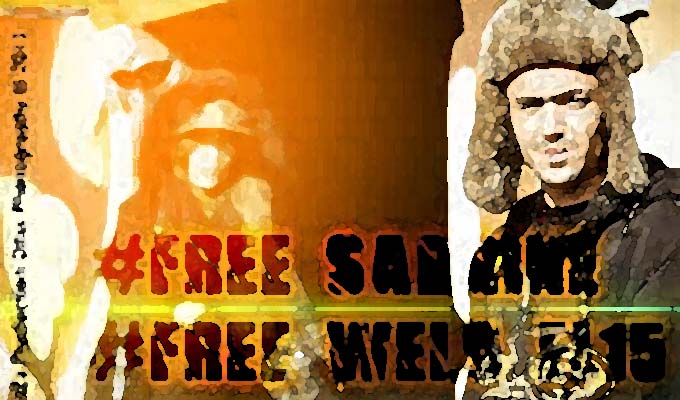
Art is one of the most prominent forms of freedom of expression, allowing people to express their thoughts through song, dance, prose and theatre. It is not uncommon across the world for performers to be attacked as a form of censorship, ultimately silencing what they are trying to say.
Ala Yaacoub- Tunisian rapper, two years imprisonment
Tunisian rapper Weld El 15, real name Ala Yaacoub, was sentenced to two years in prison after posting a song online in which he insulted and threatened police.
Yaacoub, 25, told AFP that in the rap, entitled The Police are Dogs, he used the same terms that the police use to speak about the youth: “The police have to respect citizens if they want to be respected. I am afraid because in a country like Tunisia the law is not applied; you can expect anything.”
Some of those involved in the production of the music video for the rap, including director Mohamed Hedi Belgueyed and actress Sabrine Klibi, were handed suspended sentences of six months. Yaacoub was freed a month after his trial and given a suspended six-month term.
Tunisia was the first country to be hit by the ‘Arab Spring’ after which a moderate Islamist-led government was elected after the overthrow of Zine al-Abidine Ben Ali. Since then there has been an increase in ultra-conservative Islamists, Salafists, who have been campaigning for greater public piety in Tunisia.
Aron Atabek – Kazakh poet, 18 years imprisonment
In 2007 Aron Atabek was sentenced to 18 years imprisonment following his involvement in a 2006 protest against an attempt by Kazakh authorities to flatten a shanty town; the protest ended in violent clashes and the death of a police officer.
Whilst in jail Atabek wrote poetry and prose relating to the clash which was later smuggled out of his prison and posted online. The authorities, not happy with this, sentenced Atabek to two years in solitary confinement, serving one year until November 2013. This type of punishment, in which he was watched under 24 hour video surveillance, was nothing new to the poet having spent two years in solitary confinement previously for refusing to wear a prison uniform.
Since leaving solitary confinement and returning to his previous prison Atabek’s family are still yet to have any contact with him.
Malian musicians- 12,000 singers and musicians banned from working
Islamic militants first announced a ban on music in the north of Mail in 2012; since then the ban has spread to nearly two-thirds of the country, a country from which artists such as Ali Farka Touré, Rokia Traoré and Salif Keita have witnessed global success.
After armed militants sent out death threats nearly 12,000 musicians found themselves out of work, with some facing exile, as instruments were destroyed and live venues shut down. The 2013 Festival in the Desert, a world famous Malian music event, was moved to neighbouring Burkina Faso and then later postponed due to security risks.
Fadimata “Disco” Walet Oumar was forced to flee as the conflict in Mali developed: “Life without music is not possible … I would rather die than never be able to perform, create or listen to music again in my life.”
The state of emergency has been lifted in the country and the Islamists driven out of the north of the country by the help of the French. But refugees returning to the country don’t yet believe that Mali’s problems are over.
Tunisian actors
Nineteen actors in the Tunisian city of El Kef were attacked by Salafist Muslims only to be arrested themselves by police under claims of ‘indecency’.
Whilst performing at a small theatre, to help raise funds for another venue that had been burnt down in an arson attack, the group of actors were attacked by the militant group. The performance, entitled “Guetlouh” (They Killed Him), was a tribute to opposition politician Chokri Belaid, who was assassinated in February by suspected Salafists.
The charge for indecent behaviour carries a sentence of up to six months imprisonment in Tunisia.
Lena Hendry
‘No Fire Zone: The Killing Fields of Sri Lanka’ was shown on Channel 4 in 2012, drawing in more than double the viewers of a 11pm broadcast despite the graphic content it showed. The ITN team behind the documentary went on to be nominated for a Nobel Peace Prize.
Lena Hendry, on the other hand faces jail for organising a private screening of the documentary during a human rights event in Kuala Lumpur, Malaysia.
Hendry was charged on 19 September for her involvement in the screening of the documentary on 9 July 2013 under the Film Censorship Act 2002, in connection with the screening of a video which was not vetted and approved by the Film Censorship Board of Malaysia. If convicted she faces a fine of between $1,576 and $9,455, up to three years in jail or both.
The Magistrates’ Court scheduled a final procedural hearing for 17 March 2014, and set the trial dates for 31 March to 4 April 2014. Lena Hendry is bringing a High Court appeal challenging the charges.